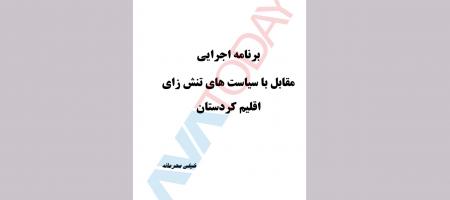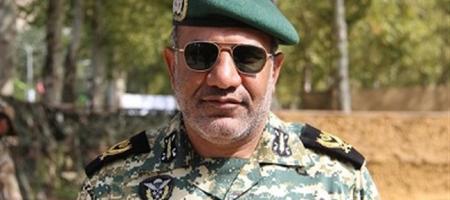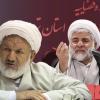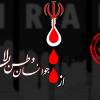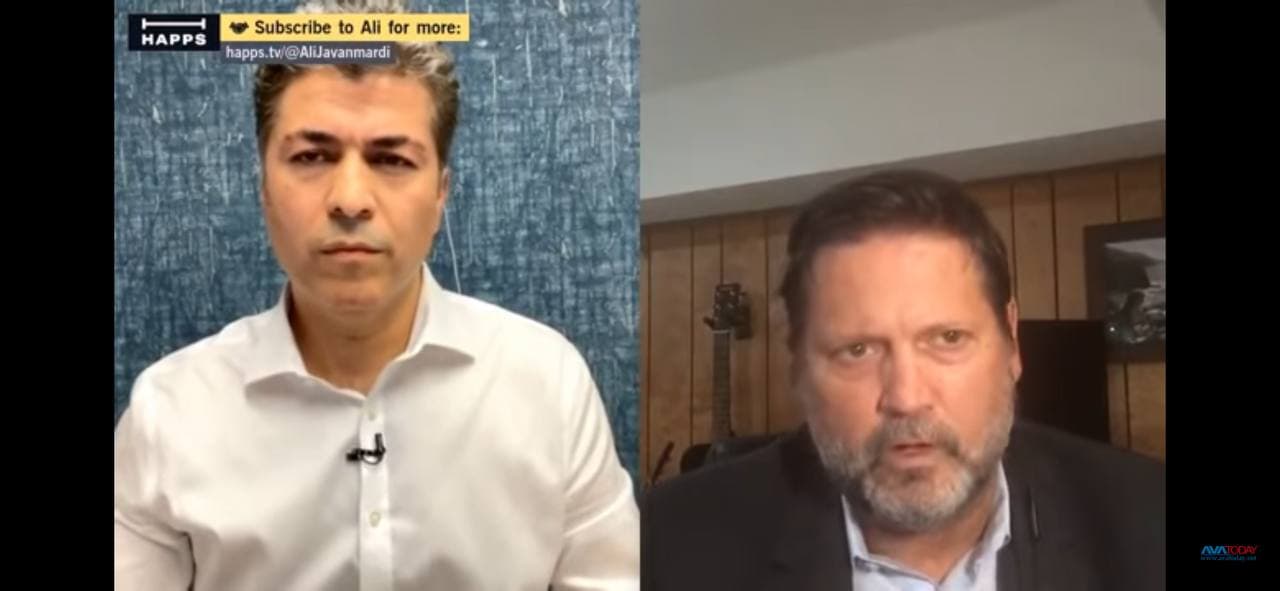
Mike Pregent is a senior fellow at Hudson Institute. He is a senior Middle East analyst, a former adjunct lecturer for the College of International Security Affairs, and a visiting fellow at the Institute for National Strategic Studies at the National Defense University.
What follows is an interview of Mr Pregent by Avatoday’s Ali Javanmardi.
Mr Pregent, in your opinion why the regime in Iran is still holding into power?
The regime is still alive today, because the United State and Europe keep giving it a lifeline. The body? Administration is doing everything it can to keep this regime afloat. The maximum pressure made it even difficult for China to keep Iran a float, but the reason the regime survives today is because it continues to use a playbook of provocations,and Europe and the United States under democrat president continue to give it a financial lifeline.
Iranians have been seeking freedom for 43 years, yet they haven’t succeeded yet. What are the strength and weakness of the regime?
The Islamic Republic of Iran does own Iran’s history, so that is a weakness, it doesn’t own Iran’s rich history, but the Iranian people do. And the Iranian people now with the protests, which have taken place in 2018, and continue to spread in other areas, so the regime is very weak and lacks legitimacy inside of Iran. The problem is the international community continues to give this regime legitimacy. There is no other regime in the World that can seize oil tankers in the strait of Hormoz, attack ships in the Gulf of Oman, conduct terrorist strikes across the Middle East and get away with it. North Korea couldn’t do what Iran does, Russia couldn’t do what Iran does, or China. But the United State and Europe continue to reward Iran for its provocations instead of punishing it for its violations of international law. So, its strength: support from the West, and its weakness is the support of Iranian people. And we have seen that with lowest turnout of its recent election under Raesi’s supposed victory in the last election
One of the biggest problems for Iranians is the lack of a media that could represent their interests. Iranian people have been also struggling with censorship. How can they find a way to express themselves freely?
This is one of the most disappointing responses by the international community. I think we have seen it in the recent history. If the international media cared about the protests in Iran that would collapse the regime. If personalities like Andersen Copper actually spent time in Tehran like he did during the protest in Egypt in Tahrir square, that would collapse the regime. Pressure on this regime by the international community is non-existent, unfortunately. What is needed is, for the Iranian people, to have access to the internet. For the international community and neighbouring countries to provide internet to the protesters and allow them to use the same social media platforms that the regime uses to talk to the west, to push out propaganda and this could be easily set up if the United States and if other countries did this. We saw a post today of new British ambassador to Tehran very excited about his new post in Tehran, but where is the UK’s demands that the Iranian people have access to the internet? That the protesters not be targeted and killed by the Basij and other forces inside of Iran. The international community is blind. Or it is not blind, it sees what is happening, but they want to keep the message from the Iranian people from getting out of Iran, and that is a big problem. The west should be very interested in putting down this regime by simply putting a spotlight on its actions.
So, you believe media has double standards when it comes to Iran?
Absolutely, if North Korea did this, the international community would condemn it. If North Korea seizes oil tankers, or if North Korea conducted an attack against his civilian ship, if China did that, the international community would condemn it. If Russia did it, the international community would condemn it, but Iran for some reason gets a pass. I don’t understand it, I think there is a romanticism that Europe has with Iran, with the Islamic Republic of Iran. They believe that it somehow has the support of its people, that romanticism is displaced. What the European are actually romanticizing is the Iranian people and conflated that with the Iranian regime, and that is embarrassing.
The Islamic Republic of Iran does not represent its people. The Islamic Republic of Iran has not the support of its people, and yet it continues to get the support of Europe and the United States. And absolutely there is a double standard when it comes to the Islamic Republic of Iran. In your opinion, how Iranians can show the truth of this regime to the people around the world, especially to the US?
That is one of the biggest problems in this whole conversation is the lack of voices coming from Iranians in the diaspora. There are no voices the media is listening to outside of those coming from NAYAK,
Prior to Obama, Democrats and Republicans were both against Iran, but Obama managed to rap the country in his arms and any time Democrats criticize Iran, they withhold that judgement, because they don’t want to insult Obama, and we need to divorce that relationship. I have no idea why Democrats believe that insulting Tehran is insulting Obama. It is again another embarrassing naïve position that Democrats hold on this regime.
Mr Pregent you have been experiencing three American wars. People inside Iran ask us how they can defeat the regime without military interventions from foreign countries. Is there any possibility of war between Israel and Iran or the US and Iran?
I believe we are already in war with Iran. This is what a war with Iran looks like. Again, a series of provocations, a series of attacks, and they always ask for money in return. One thing that I find interesting is that Raesi said: “we will ensure that the strait of Hormuz is safe from ‘us’, meaning the threats in the Strait of Hormuz and the Gulf of Oman is from IRGC, the Revolutionary Guard navy and it is extortion. So, this is what war with Iran looks like. There will not be an invasion of Iran. The United States will never invade another country like it did in Iraq and Afghanistan. The American people have no appetite for these failed strategies of ‘forever wars’. But, war with Iran could be as simple as maximum pressure, a media spotlight on the protests in Iran, a demand from Western governments that the regime steps down, sanctioning China and Russia for supporting the regime, and I think the Iranian people— I heard this from diaspora— that they are ok with targeting IRGCs, they are ok with targeting the regime, and I think that could take place. We really have to look at the regime’s threats: its Lebanese Hezbollah, it is Hamas, its Islamic Jihad, and they threaten to attack Israel, they threaten to attack Saudi Arabia, they threaten to fracture the Middle East, and that is what they use.
This is what the war with Iran looks like, and the only thing keeping Iran afloat is the United States. The United States and this administration is lifting sanctions, this administration is not holding China and Russia accountable for circumventing sanctions against Iran.
Why are the Western countries not supporting Iranian’s will for a regime change?
The west believe that regime change will result in Iraq, regime change will result in Libya. So, they are very worried about collapsing something…
I don’t mean a regime change by attacking the country, I mean why they don’t support people?
Yes, if you help Iranian people, that will collapse the regime. That is what we really talking about here. They don’t want to help Iranian people, because they don’t want to collapse the regime. If the regime collapses, they believe it will look like Syria, it will look like Libya, it will look like Iraq, it will basically be a mistake, and they will always have the strawman argument. What if something more dangerous follows the regime. And this argument I think is a fraud in many ways, because you are letting people suffer, because you are afraid of what could come after something bad like the regime. And that is an excuse for inaction, and that is a self-imposed obstacle for success.
The international community needs to turn on the internet, allow Iranian to get the videos out of the regime suppressing the protests, and we need western media inside Tehran demanding the regime to stop. That would collapse the regime. It is not going to be done militarily. It always is done when the international community says enough, put a spotlight on it, and especially when the protests are being, the civilians are being killed by the security forces. This should get the international community to respond, but unfortunately Syria is an example of inaction. Six hundred thousand of Syrian died, because international community was worried about what would come after Assad. And the regime uses it, this is an example of how to survive.
Don’t you think that what is happening in Syria now is a consequence of Iran’s interference in that country?
Yes, absolutely. I mean behind every problem in the Middle East is Iran. You know, if you look at Iraq, Yemen, Syria, Lebanon, what they are trying to do in Bahrain, what they are trying to do in Eastern provinces of Saudi Arabia, what they are doing in the Strait of Hormuz, the Gulf of Oman, attacking Israel, attacking America. Absolutely, if the regime falls, the Middle East would be a better off, especially those countries that are affected by Iran, but what will replace that is the question and hopefully it is the Iranian people deciding to have an inclusive democratic government. And of course, we have to have reconciliation and amnesty for the law-raking members of the Revolutionary Guard and those types of activities.
The regime is using many channels to spread false information and misleading the people, do you think the social media alone would be enough to let people know the truth behind this regime?
Well, the regime is using the twitter, and the regime uses Facebook and denies that to the Iranian people.
What do you think of lack of leadership among the opposition movements in Iran?
That is the biggest problem that leadership inside Iran gets targeted, gets identified by the regime. The United States is in search of Guaidós like in Venezuela, for example. We have an opposition leader, Guaidó. We don’t have that leader in Iran. Why? probably because he is in Evin prison, or she is in Evin prison. Because when the regime identifies charismatic opposition leaders, they marginalize them and target them. Outside of Iran, we have many different groups that say that they have the support of Iranian people, but they don’t get along and that is one of the biggest problems I see as an American as we engage these different groups, they don’t like any other group that pops up or any other leader. So, you have Pahlavis, you have the woman who have been put in jail because of Hijab, and then you have other groups, and nobody wants to say that we have to have an umbrella, that we need an umbrella opposition group to replace the regime. It needs to be organic; it needs to be from inside Iran. It needs to have the support of the Iranian people, and as soon as the regime identifies anyone that fits that signature, they target them.
How do you define the weakness and strength of Iranian people?
The regime has the ability to go after charismatic leaders, that is their strength. Their weakness is that they are very unpopular. The people’s strength is that they are opposed to the regime. Their weakness is that they cannot get behind a leader.

